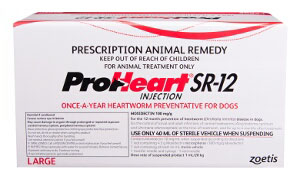Parasite Control
Hilton Vet Hospital can your your cat or with parasite prevention and control.

Parasite Control for Dogs
Intestinal Worms
The most common worms that infect dogs are Roundworm, Hookworm, Whipworm, and Tapeworm. To control these worms, it is necessary to have a regular worming routine. Gastro-intestinal worms can cause serious malnutrition, weight loss in spite of increased appetite, vomiting, diarrhoea and death.
How often you treat your dogs and puppies for worming depends on their age:
1 - 16 weeks of age
Frequency: Worm every 2 weeks
Up to 6 months of age
Frequency: Worm every month
6 months of age and over
Frequency: Worm every 3 months
Heartworm Prevention
Heartworm is carried and transmitted by mosquitos. The larval stage of the worm is deposited in the tissue of a pet after being bitten by a mosquito. The larvae migrate through body tissue where they develop into immature adults which finally reach the heart via the venous system. Adults mature in about 6 months and are found in the heart and major blood vessels. The adults mate, and the female produces millions of microfilariae to circulate in the peripheral blood to renew the cycle. The dog can be severely affected, with major vessels becoming blocked with chronic infections. Death usually results in such cases from heart failure.
Hilton Vet Hospital recommends the following products:


Parasite Control for Cats
Intestinal Worms
The most common worms that infect cats are Roundworm, Hookworm, Whipworm, and Tapeworm. To control these worms, it is necessary to have a regular worming routine. Gastro-intestinal worms can cause serious malnutrition, weight loss in spite of increased appetite, vomiting, diarrhoea and death.
How often you treat your cats and kittens for worming depends on their age:
2 - 8 weeks of age
2 - 3 months of age
Frequency: Worm every month
4 months of age and over
Frequency: Worm every 3 months
Heartworm Prevention
Heartworm is carried and transmitted by mosquitos. The larval stage of the worm is deposited in the tissue of a pet after being bitten by a mosquito. The larvae migrate through body tissue where they develop into immature adults which finally reach the heart via the venous system. Adults mature in about 6 months and are found in the heart and major blood vessels. The adults mate, and the female produces millions of microfilariae to circulate in the peripheral blood to renew the cycle. The cat can be severely affected, with major vessels becoming blocked with chronic infections. Death usually results in such cases from heart failure.

Flea Control
Adult fleas spend most of their time feeding off dogs, cats and other small animals. The adults make up only 5% of the total flea population. The other 95% consist of flea eggs, larvae and pupae that exist in the area where the animals live. This is usually in and around the house.
As fleas are largely an environmental problem, it is essential to vacuum clean carpets and floors to keep flea eggs and larvae to a minimum. Focus on the low traffic areas, under furniture.
Contact our team today for advice on your pets parasite control.
Pet owners from all over Fremantle, Hilton, Hamilton Hill, O’Connor, White Gum Valley, Beaconsfield, Willagee, Samson, Coolbellup, Kardinya, Spearwood and Coogee have been coming to Hilton Vet Hospital for more than 30 years to receive exceptional service and care for their pets.
